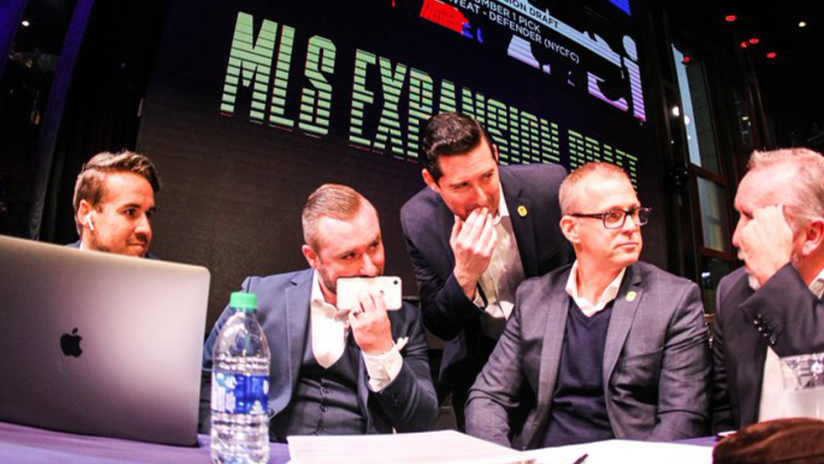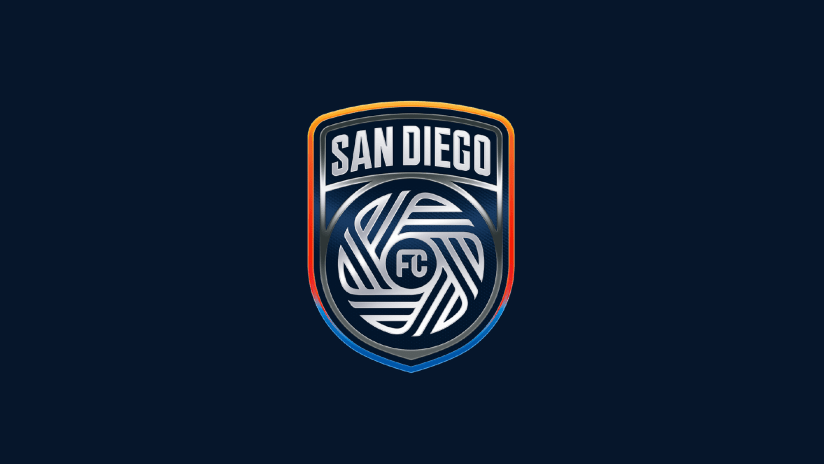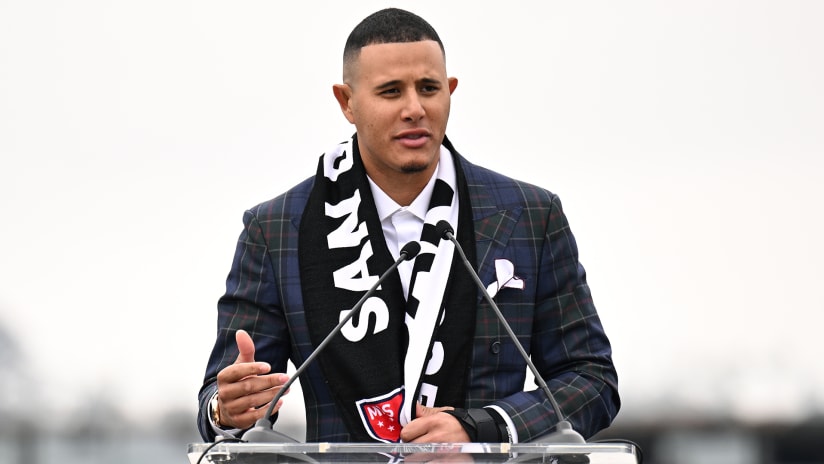With barely three months to go until their MLS debut, it’s safe to say that Nashville SC have a lot on their plate.
The club navigated the Expansion Draft, a key squad-building milestone in the lead-up to their inaugural league match – which they announced would take place on Feb. 29 at Nissan Stadium. The opponent is also notable: Atlanta United, the nearest MLS colleague to Nashville, a likely future rival and, for better or worse, the expansion success story NSC are likely to be compared with often in the months and years ahead.
Nashville entered the Expansion Draft with just nine players signed to their MLS roster. But the group took significant shape over the course of a busy draft day where NSC picked five players, immediately flipped two for other assets and acquired two more via trades, a haul that drew generally positive reviews. They signed four more players from their USL team just days later, selected veteran fullback Eric Miller in Stage 1 of the Re-Entry draft and are reportedly in the process of signing young Honduran defender Denil Maldonado.
They are also in the midst of the transition from USL to MLS, an organizational ramp-up spread across two leagues, two office locations and what will eventually be three home stadiums over a four-year period in which they’re still introducing themselves to their community.
It all adds up to a hefty to-do list three months out from that first kickoff in MLS.
“Can we win in year one?” asked general manager Mike Jacobs in a recent conversation with MLSsoccer.com. “I think the teams that do really well, we talk about groups like Sporting Kansas City or Seattle: This product is about sustained success. It's about not only trying to find a way to be competitive in year one, but how do we sustain that and grow something that can be self-fulfilling – that every year, our fans are expecting that we’re actually playing for something?”
Fortunately they’ve got an ace in the hole or two in the Music City, as MLSsoccer.com learned in a recent visit to NSC’s headquarters to meet with several members of the technical staff charting the club’s course towards the future.
With limited fanfare, Nashville have constructed one of the more intriguing brain trusts in modern MLS. To be sure, CEO Ian Ayre is a well-recognized figure in the world game thanks to his tenure as managing director and CEO at Liverpool FC from 2011-17, and he’s played a key outward-facing role for NSC.
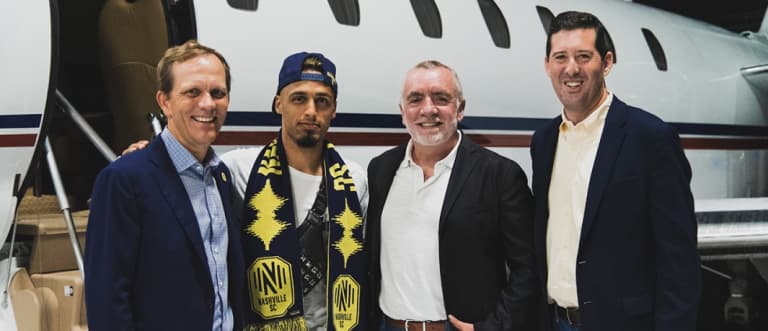
(Left to right) Owner John Ingram, DP signing Hany Mukhtar, Ian Ayre and Mike Jacobs | Nashville SC
Most MLS insiders are familiar with Jacobs, a former Peter Vermes acolyte at Sporting KC and past president of the United Soccer Coaches who also worked at USL as an executive VP and coached at the NCAA level for two decades. And head coach Gary Smith has the 2010 MLS Cup title on his CV, the highlight of three-plus years in charge of the Colorado Rapids.
The group working to bring Ayre’s and Jacobs’s vision to fruition also includes:
- Assistant GM Ally Mackay, a former agent and Scotsman who played for Jacobs at the University of Evansville and worked with longtime player agent Patrick McCabe at the Stellar Soccer agency
- Retired MLS fullback Chance Myers, the No. 1 pick in the 2008 SuperDraft and a 10-year league veteran who now heads Nashville’s scouting operations
- An analytics specialist with a neuroscience background named Oliver Miller-Farrell, who arrived from a stint with Opta and the Perform Group.
It is a group that to some will sound a familiar tone from Ayre's time at Liverpool, when he was part of a selection of experts from across departments that came together to identify potential transfer targets. Once derided as a so-called "transfer committee," it has produced undoubted success, landing signings like Roberto Firmino, Sadio Mane, Philippe Coutinho and later Mohamed Salah that helped turn Liverpool into the champions of Europe.
In Nashville, Jacobs often gathers the group to discuss a range of technical decisions, from evaluating potential signings to building out NSC’s newly-hatched academy and beyond. No matter the topic at hand, an egalitarian sensibility reigns.
“The table we meet at, it's a roundtable,” explained Jacobs, an idea he transplanted from his time as an assistant coach at Duke University. “And that may sound cliched or hokey, but the roundtable is really important to me … So when you're in there, doors closed, we’re all the same. It's not like weighted or valued as far as whose opinion means more.
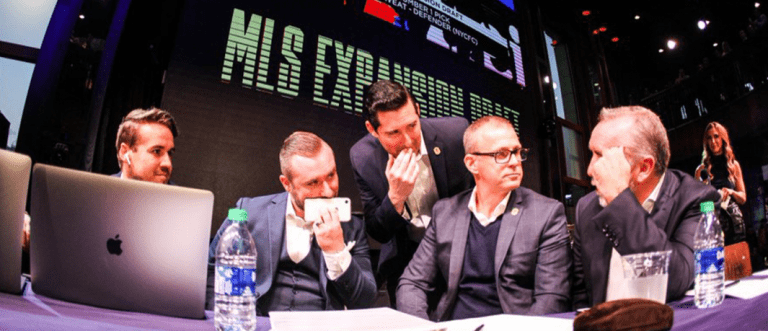
Nashville's brain trust (L to R): Chance Myers, Ally Mackay, Mike Jacobs, Gary Smith, Ian Ayre | Nashville SC
“None of us here are the smartest guy in the room. We don’t have all the answers. And I think that we're going into this very open-minded about the fact that this is going to be a very challenging project. So for us, we're expecting the mistakes. We're expecting to not hit on all our guys that we selected. And we're expecting, at times, the tactics not to work.”
Jacobs has, with tongue partially in cheek, referred to NSC as “SKC South,” and there is some Sporting DNA present, no shock given that club’s consistent success in a smaller market and mid-range budget. Myers spent most of his playing career in KC, where animated locker-room discussions with the likes of Benny Feilhaber and Ike Opara helped foster his interest in his current gig.
“I would always have conversation with [Jacobs] when he was in Kansas City. I'd sit down with Benny and Ike, and we’d just [say], ‘alright, how does this guy fit? How's LA fitting guys into their salary cap? How's New York – where did they find this guy? What league did he come from?’” recalled Myers.
“So from an early standpoint, probably 22, 23 years old, just trying to figure out like how teams were being built. And the evolution of MLS 1.0, 2.0 – whatever we're at, just the different, you know, ebbs and flows of how the league's being structured.”
But with two New York-area natives in the mix, there’s also something of a cosmopolitan streak – literally, considering Jacobs was a New York Cosmos ballboy in his youth – that’s well in keeping with the city’s status as a rowdy entertainment capital. The club introduced German midfielder Hany Mukhtar, their first-ever Designated Player, by winging him in from Denmark on a posh private jet, and used the slogan “uniquely Nashville” as shorthand for the blend of graft, glitz and southern hospitality they feel epitomizes country music’s neon mecca.
“Ask Chance – players want to be valued, they want to be treated as important,” said Jacobs. “The great feedback we've gotten so far post-Hany signing was that ‘Nashville does it right, they take care of their players. Players are important there, players are valued there.’ I'm blown away by the number of players, through their agents, who talk about being intrigued by what we're doing here. And that's not just domestically, that’s internationally as well.”
Mackay’s decade of agent work and multinational contacts network is a major benefit in this area, ensuring players are always looked after off the field in the aim of maximizing the chances of them performing on it.
Jokingly dubbing himself “the ‘well actually’ guy,” Miller-Farrell is tasked with keeping data at or near the heart of NSC’s decision-making processes. And while he doesn’t consider himself a “spreadsheet guy” on the level of respected – and highly successful – analytics managers like Toronto FC’s Devin Pleuler and the Seattle Sounders’ Ravi Ramineni, he brings a “holistic” perspective that NSC believe can provide a range of competitive advantages.
Jacobs is firmly on board with the value of analytics across multiple areas of operations.
“We're not just doing this because other clubs are doing it – maybe we're doing some things other clubs aren't doing, in regards to how we use data and analytics,” he said. “We just believe strongly that it's going to help us and we believe it’s the right thing to do.”
Nashville’s technical staff know the risks that lie before them. They have no illusions about the difficult road traveled by all but the richest and most aggressive expansion teams. They also believe they are building the foundations of a sustainable club culture with a stable decision-making process, even if they’re wary of making big promises or pronouncements about the results to come.
“We’ve got a lot of people who understand things very differently from different angles, different lenses," Jacobs said. "So to me, we're going to have better answers – but we’re going to have more answers. We’re going to have different answers.”


